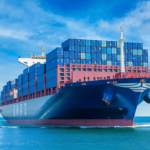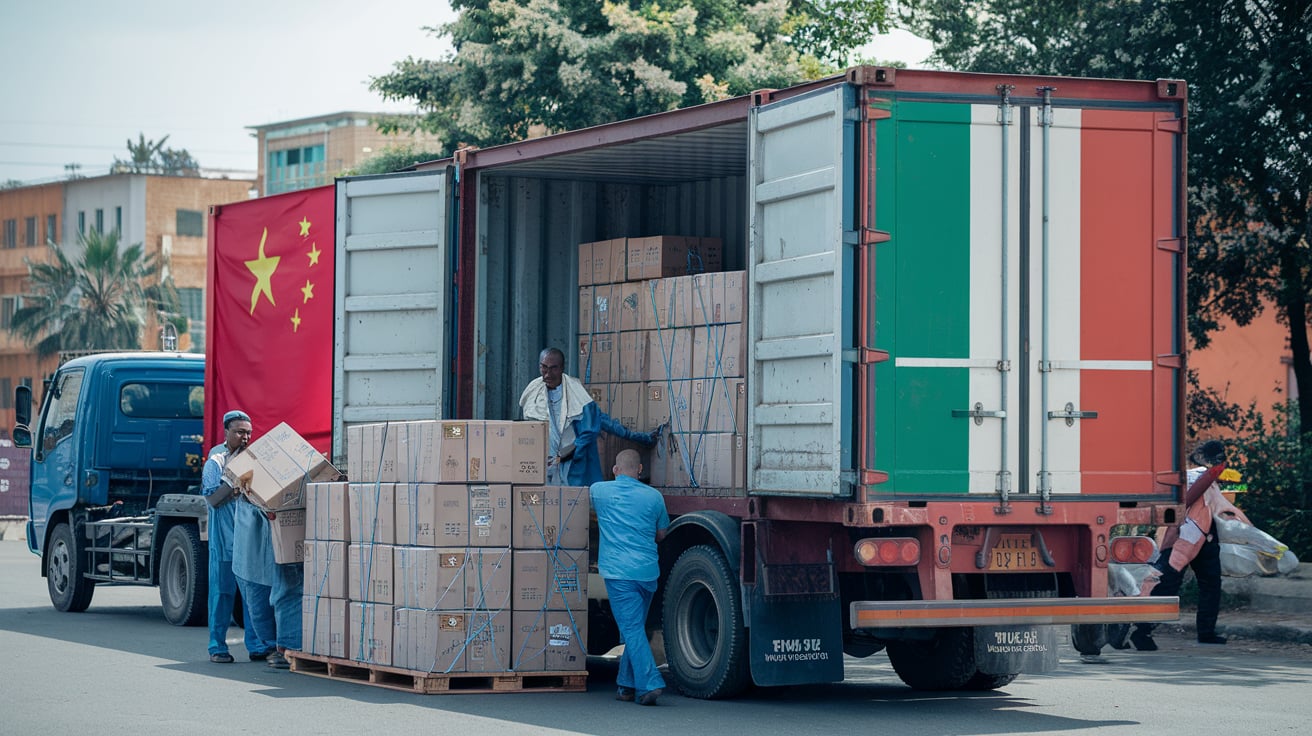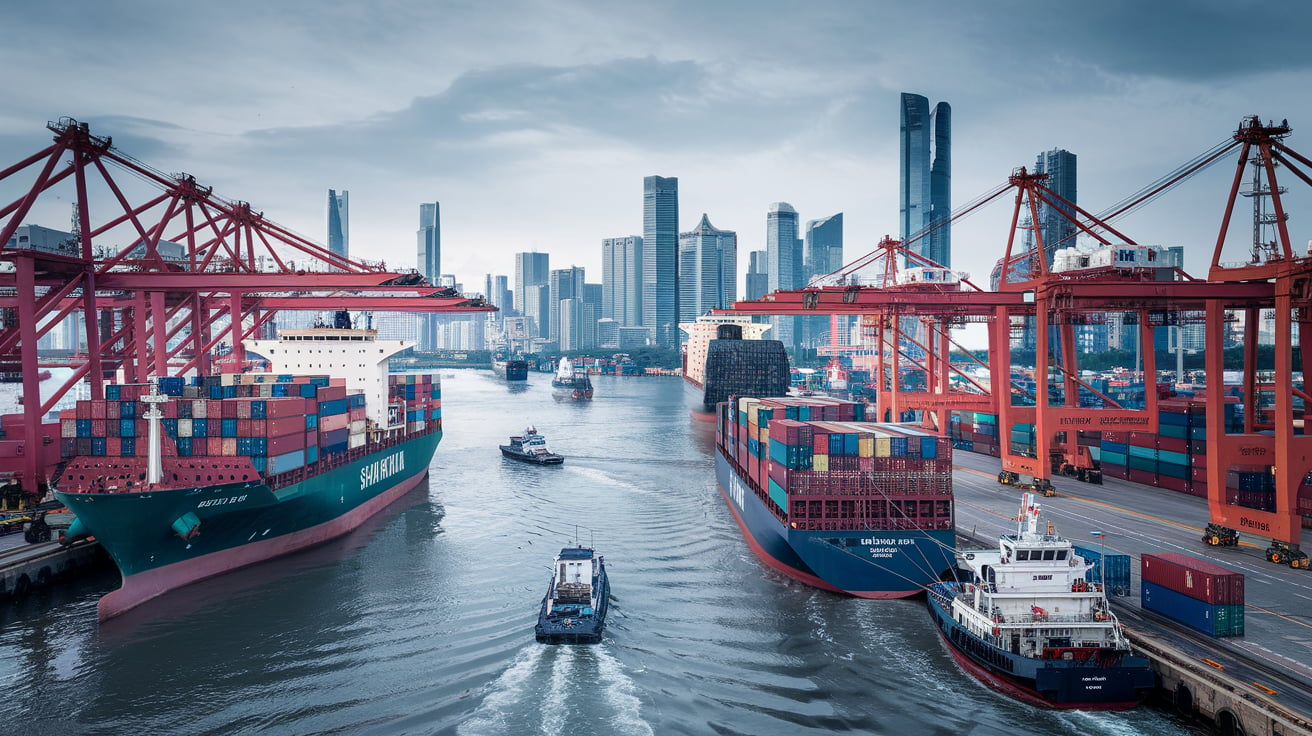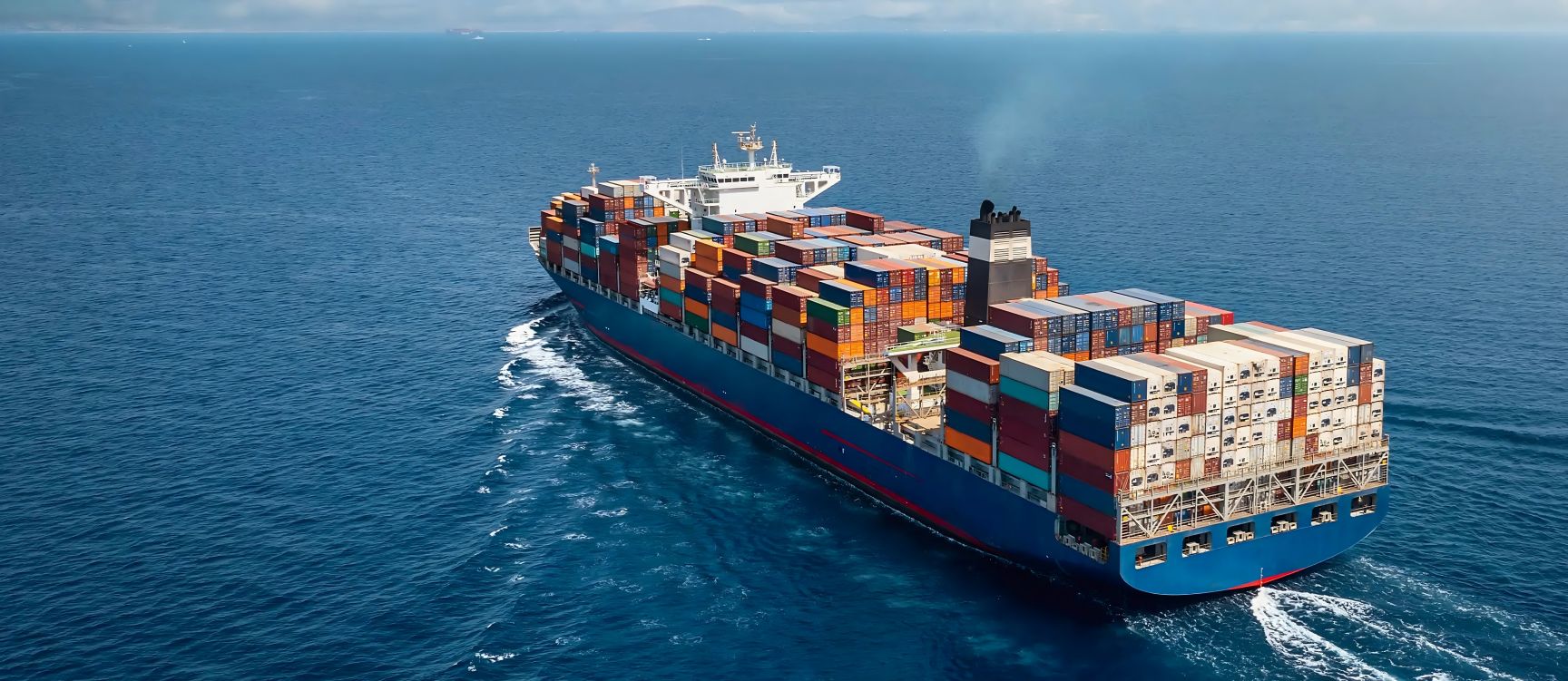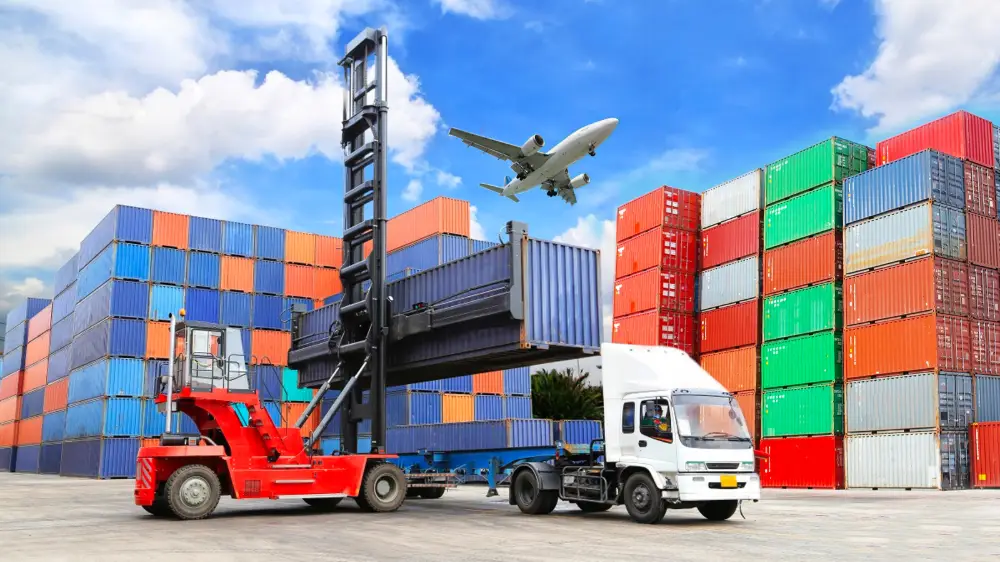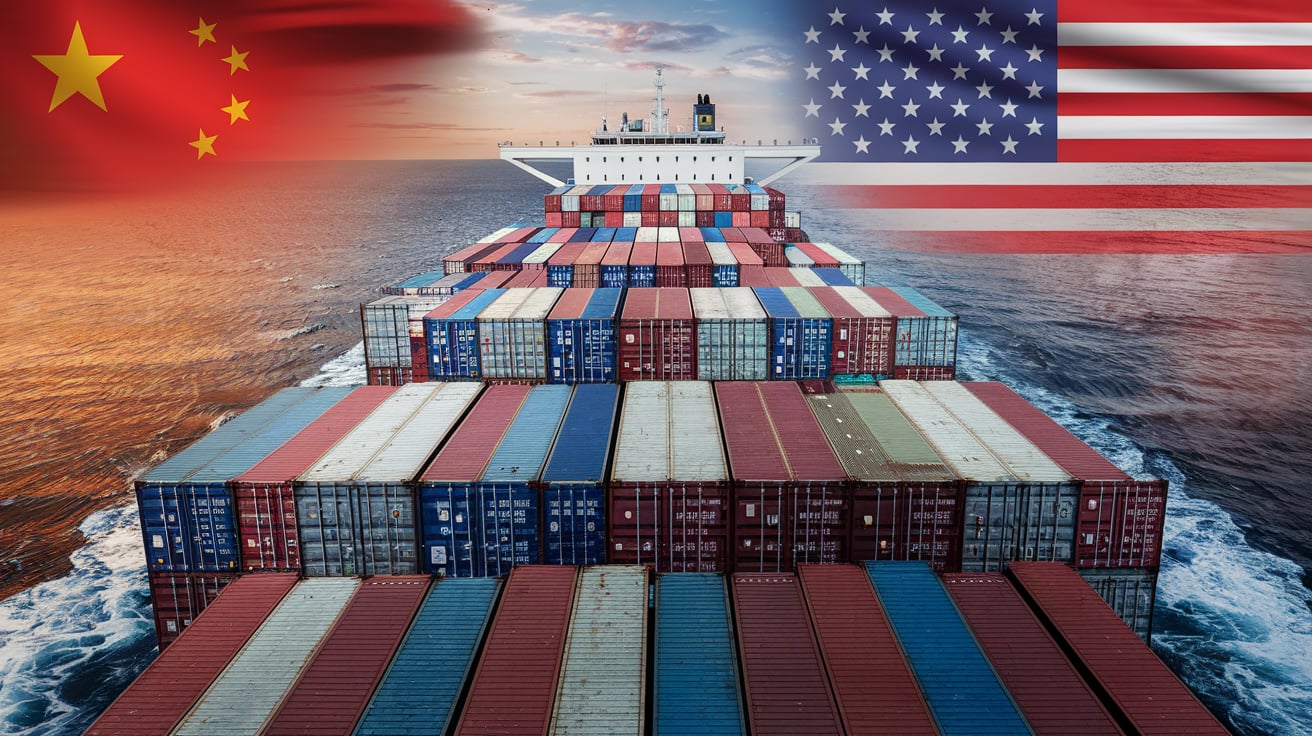When importing goods from China to France, selecting the right shipping method is essential for optimizing costs, ensuring timely delivery, and maintaining efficiency in logistics. With various shipping options available, such as sea freight, air freight, and rail freight, understanding the benefits and drawbacks of each can help you make informed decisions tailored to your specific needs. Additionally, various factors—such as distance, type of goods, and customs regulations—play a crucial role in determining shipping costs. This guide provides an in-depth analysis of shipping methods and practical tips for finding the most cost-effective shipping solutions for your business.

Shipping Methods from China to France
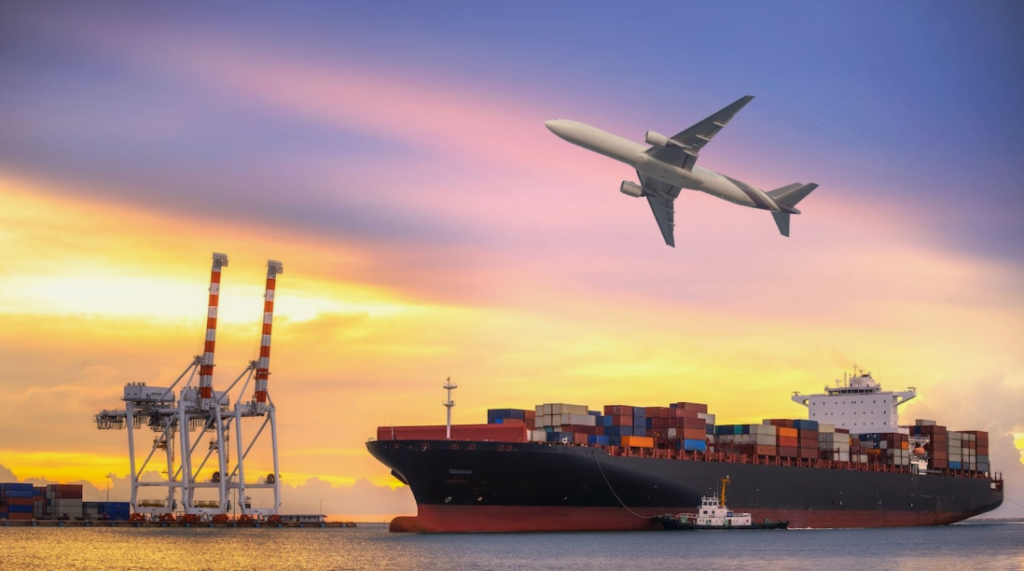
Sea Freight from China to France
Sea freight is often the most cost-effective option for transporting bulk shipments from China to France. This method is particularly advantageous for large volumes of goods due to its lower cost per unit compared to other shipping methods.
- Benefits of Sea Freight for Bulk Shipments
Sea freight can accommodate large quantities, making it suitable for businesses looking to import large volumes of products. Additionally, it offers flexibility with container sizes, which can further reduce shipping costs. - Cost Comparison with Air Freight
When comparing ocean freight to air freight, the cost savings with sea freight can be substantial. For example, shipping a standard 20-foot container via sea can range from $1,500 to $3,000, whereas air freight for the same volume could exceed $10,000. - Estimated Shipping Times and Costs
Shipping times via sea freight typically range from 25 to 40 days, depending on the port of departure and arrival. Costs can vary based on factors like seasonal demand and fuel prices.
Air Freight from China to France
Air freight is the preferred option for smaller, urgent shipments, offering quick delivery times and reliability.
- Advantages for Smaller, Urgent Shipments
Air freight is ideal for time-sensitive shipments. If you need goods delivered quickly, air freight can significantly reduce transit times, often to just a few days. - Pricing Structure and Delivery Times
The pricing for air freight is typically based on weight and volume, with costs ranging from $5 to $10 per kilogram. Delivery times generally range from 3 to 7 days. - When to Choose Air Freight Over Sea Freight
Opt for air freight if you are shipping high-value items or if your shipment is small but urgent. In cases where delivery speed is crucial, air freight is the superior choice.
Rail Freight from China to France
Rail freight has emerged as a competitive alternative for shipping goods from Asia to Europe, combining the speed of air freight with the cost-effectiveness of sea freight.
- Overview of Rail Shipping Options
Rail services can seamlessly connect major Chinese cities with European hubs, facilitating efficient and timely deliveries. - Cost-Effectiveness and Transit Times
Rail freight is often more affordable than air freight while offering faster transit times than sea freight—typically around 15 to 20 days. - Comparison with Other Shipping Methods
While rail freight may not be suitable for bulk shipments as cost-effectively as sea freight, it serves as an excellent compromise between cost and speed, especially for medium-sized shipments.
Read More:
- Shipping From China To Netherlands
- Shipping From China To Spain
- Shipping From China To Germany
- Shipping From China To France
- Shipping From China to Italy
- Shipping From China To Poland
- Shipping From China to United Kingdom
Factors Affecting Shipping Costs
Understanding the factors that influence shipping costs can help you make informed decisions and manage your budget effectively.
Distance and Route
- Impact of Shipping Routes on Pricing
The shipping route taken can significantly impact costs. Shorter and more direct routes tend to be cheaper. Analyzing various options is critical for cost management. - Major Ports of Departure and Arrival
Shipping typically originates from major ports in China, such as Shanghai and Shenzhen, to primary ports in France, including Le Havre and Marseille. The choice of ports can also affect overall shipping costs and delivery times.
Type of Goods
- How the Nature of Goods Influences Shipping Costs
The type of goods being shipped can influence costs profoundly. For example, hazardous materials or perishables may incur additional fees due to the need for special handling and storage. - Restrictions and Regulations for Different Items
Each type of product may be subject to different import regulations, which can further complicate shipping logistics. It’s crucial to understand these restrictions beforehand.
Customs Duties and Taxes
- Overview of Import Taxes in France
Importing goods into France often incurs customs duties and VAT, which can add to the overall shipping costs. Typically, customs duties can range from 0% to 20% based on the product category. - Importance of Understanding Customs Regulations
Being knowledgeable about customs regulations can prevent delays and additional charges. It’s advisable to work with experienced freight forwarders like Dantful International Logistics to navigate these complexities efficiently.
Choosing Dantful International Logistics can streamline your shipping process with their cost-effective solutions, ensuring that you enjoy a reliable and professional logistics experience. Transitioning your goods from China to France has never been easier, thanks to their comprehensive services that include customs clearance, insurance services, and warehouse services, tailored to meet the needs of global traders.
Tips for Finding the Cheapest Shipping Company
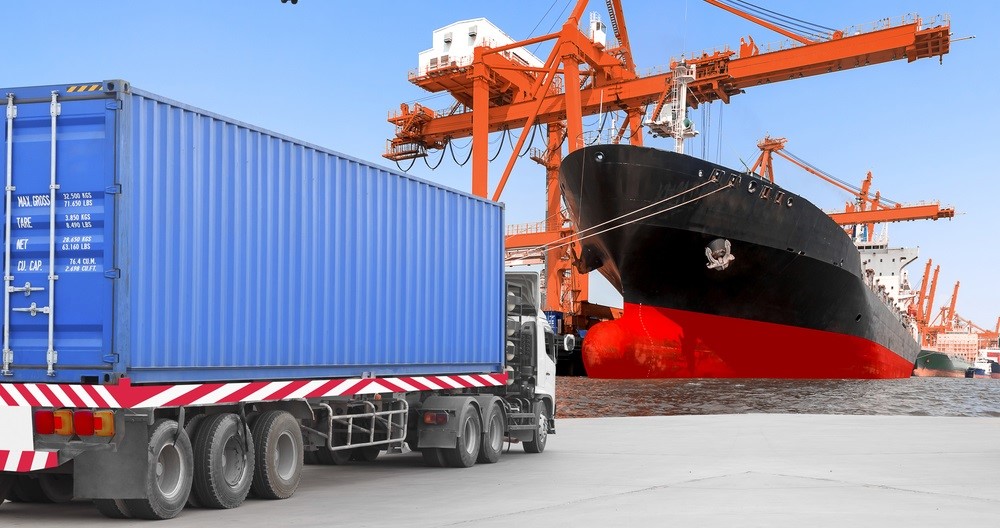
Comparing Quotes
Obtaining multiple quotes from different shipping companies is an essential step in securing the best rates for your shipments.
- Importance of Obtaining Multiple Quotes
Each shipping company may offer different pricing structures based on their service quality, delivery times, and additional fees. By comparing several quotes, you can identify the most competitive rates and the services that provide the best value for your specific shipping needs. - Key Factors to Consider When Comparing Rates
When evaluating shipping quotes, consider not only the base price but also the following factors:- Transit Times: Faster services often come with a premium.
- Included Services: Check if the quote includes customs clearance, insurance, and handling fees.
- Type of Shipping: Ensure you are comparing similar shipping methods (e.g., sea freight vs. air freight).
- Reputation and Reliability: Research customer feedback to gauge the quality of service provided.
Utilizing Freight Forwarders
Freight forwarders can be invaluable partners when navigating international shipping logistics.
- Benefits of Using Freight Forwarding Services
Freight forwarders simplify the shipping process by handling logistics, documentation, and regulatory compliance. They can negotiate better rates due to their volume of shipments and relationships with carriers. Additionally, they offer expertise in customs regulations, reducing the risk of costly delays. - How to Choose a Reliable Freight Forwarder
Selecting a reputable freight forwarder involves:- Researching Credentials: Check for licenses, certifications, and memberships in industry organizations.
- Reading Reviews: Look for customer testimonials and case studies that demonstrate a track record of successful shipments.
- Evaluating Service Offerings: Ensure they provide the services you need, such as customs clearance and insurance services.
Seasonal Considerations
Shipping rates can fluctuate significantly based on the time of year, making it essential to consider seasonal impacts on pricing.
- How Shipping Rates Fluctuate with Seasons
During peak seasons, such as holidays and major sales events, shipping volumes increase, leading to higher rates due to demand. Conversely, off-peak seasons may offer lower rates, making it a cost-effective time to ship goods. - Planning Shipments Around Peak Times
To minimize shipping costs, plan your shipments to avoid peak periods. This might involve scheduling orders earlier in the year or exploring alternative routes that may offer better rates during busy times.
Why Choose Dantful Logistics for Shipping to France?

When selecting a shipping partner, Dantful International Logistics stands out for several reasons:
- Highly Professional Services: Dantful provides comprehensive international logistics services tailored to meet the needs of traders. Their dedicated team brings expertise in navigating the complexities of cross-border shipping.
- Cost-Effective Solutions: Dantful offers competitive pricing through strategic partnerships with carriers, ensuring you get the best rates without compromising on service quality. Their focus on ocean freight and air freight means you can find options that suit your budget and timeline.
- One-Stop Logistics Provider: From insurance services to warehouse services, Dantful provides all the necessary components for efficient shipping. Their expertise in customs clearance ensures your goods move smoothly through regulatory channels, minimizing delays.
- Commitment to Customer Satisfaction: Dantful prioritizes client satisfaction, offering personalized support throughout the shipping process. Their knowledgeable team is available to address any inquiries or concerns, ensuring a seamless shipping experience.
By partnering with Dantful Logistics, you can confidently navigate the complexities of shipping from China to France, knowing that you’re backed by a trusted logistics provider committed to efficiency and cost-effectiveness.
Dantful International Logistics Services:
- Dantful Ocean Freight Services
- Air Freight From China
- Amazon FBA Freight Forwarding
- WAREHOUSE Services
- One-Stop Customs Clearance Solution
- Cargo Insurance Services in China
- DDP Shipping Services By Dantful Logistics
- Out of Gauge Cargo Transportation Shipping Services
FAQs
1. What are the main shipping methods from China to France?
The primary shipping methods include sea freight, air freight, and rail freight. Sea freight is the most cost-effective for bulk shipments, air freight offers quick delivery for smaller packages, and rail freight provides a balance of speed and cost for medium-sized shipments.
2. How long does it take to ship goods from China to France?
Shipping times vary by method:
- Sea Freight: Typically 25 to 40 days.
- Air Freight: Usually 3 to 7 days.
- Rail Freight: Generally around 15 to 20 days.
3. What factors influence shipping costs?
Shipping costs can be affected by several factors, including:
- The distance and route taken.
- The type of goods being shipped (e.g., hazardous materials may incur additional fees).
- Customs duties and taxes imposed upon arrival in France, typically ranging from 0% to 20%.
4. How can I find the cheapest shipping company from China to France?
To find the cheapest option, consider:
- Comparing quotes from different shipping companies.
- Utilizing freight forwarders who can negotiate better rates and manage logistics.
- Being mindful of seasonal considerations, as shipping rates can fluctuate during peak times.
5. Why should I choose Dantful International Logistics for shipping to France?
Dantful offers highly professional, cost-effective solutions tailored to the needs of traders. Their comprehensive services, including customs clearance, insurance services, and warehouse services, ensure an efficient shipping experience with a focus on customer satisfaction.
6. What services does Dantful provide for shipping?
Dantful offers a range of services including door-to-door shipping, insurance services, customs clearance, air freight, and ocean freight, making them a one-stop logistics provider for international shipping needs.

Young Chiu is a seasoned logistics expert with over 15 years of experience in international freight forwarding and supply chain management. As CEO of Dantful International Logistics, Young is dedicated to providing valuable insights and practical advice to businesses navigating the complexities of global shipping.







